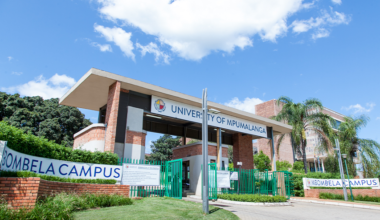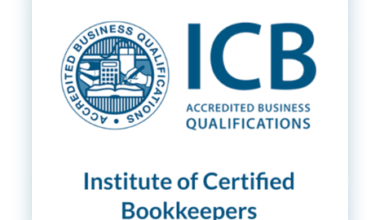Financial management is all about planning, organizing, directing, and controlling the financial activities of an organization. It helps businesses make smart decisions about how to manage their money. But it’s not just about crunching numbers or doing bookkeeping.
It involves understanding the bigger picture – like how to use money to grow a business and maximize profits.
If you’re interested in getting into this field, there are many financial management courses in South Africa that can help you learn these important skills. These courses can set you on the right path, whether you want to work in a large corporation or start your own business.
In this article, we’ll explore the best financial management courses available and their fee structures for 2025, so you can make an informed choice about your education and future career.
Table of contents
- Is a Financial Management degree worth it in South Africa?
- Is financial management in high demand in South Africa?
- Best Financial Management Courses in South Africa
- 1. Master of Business Administration (MBA) with a specialization in Finance
- 2. Master of Commerce in Financial Management
- 3. Postgraduate Diploma in Financial Management
- 4. Certificate in Investment Management
- 5. Certificate in Risk Management
- 6. Certificate in Financial Planning
- 7. Certificate in Corporate Finance
- 8. Certificate in Cost Accounting
- 9. Certificate in Forensic Accounting
- 10. Certificate in Business Valuation
- Where can I study Financial Management in South Africa?
- Financial management courses requirements in South Africa
- How long does it take to study financial management in South Africa?
- How much does it cost to study financial management in South Africa?
- FAQs
- Conclusion
- References
- Recommendations
Is a Financial Management degree worth it in South Africa?
A Financial Management degree can be a smart choice in South Africa, especially if you’re aiming for a career in finance or business.
This field opens up so many career paths, from financial analyst roles to management positions in banks, investment firms, and large companies. South Africa has a growing demand for skilled financial experts who can help businesses make sound financial decisions.
Plus, with this degree, you’ll gain valuable skills in budgeting, investment analysis, and financial planning—skills that are useful in almost any industry.
So if you’re looking for a degree that offers stability, good job prospects, and real-world value, Financial Management is definitely worth considering.
Read: Nosa Courses and Prices in South Africa
Is financial management in high demand in South Africa?
Yes, financial management is in high demand in South Africa. According to the recent CareerJunction Employment Insights Report, business and management professionals are the most sought-after in the country, closely followed by finance professionals.
This means that finance is the second most in-demand job sector here. With companies looking for skilled financial managers to help navigate economic changes and make strategic decisions, the demand for finance expertise continues to grow.
A career in financial management, therefore, offers strong job prospects and opportunities across many sectors in South Africa.
Best Financial Management Courses in South Africa
Here’s a list of the best financial management courses in South Africa:
- Master of Business Administration (MBA) with a specialization in Finance
- Master of Commerce in Financial Management
- Postgraduate Diploma in Financial Management
- Certificate in Investment Management
- Certificate in Risk Management
- Certificate in Financial Planning
- Certificate in Corporate Finance
- Certificate in Cost Accounting
- Certificate in Forensic Accounting
- Certificate in Business Valuation
1. Master of Business Administration (MBA) with a specialization in Finance
The Master of Business Administration (MBA) with a specialization in Finance is one of South Africa’s top choices for anyone looking to dive deep into financial management.
This course combines solid business training with a sharp focus on finance, giving you a well-rounded understanding of financial markets, corporate finance, investment strategies, and risk management.
In South Africa, the MBA in Finance opens doors to senior roles in banks, corporations, and consulting firms, where professionals with strong financial insight are highly valued.
Beyond the core financial skills, an MBA here also equips you with strategic leadership and problem-solving abilities—qualities in high demand across South African industries.
Also, read: Can I Get An MBA Without A Business Degree? Explained
2. Master of Commerce in Financial Management
Basically, the Master of Commerce (MCom) in Financial Management is one of South Africa’s top advanced courses for diving into finance on a deeper level.
This degree focuses on financial planning, investment management, and corporate finance, preparing you with analytical and research skills tailored for financial decision-making. It’s ideal if you’re looking to step into high-level finance roles or if you have plans to go into academia.
An MCom in Financial Management in South Africa is highly respected and can lead to roles in investment banks, consulting firms, or corporate finance departments where specialized knowledge is key.
With the country’s growing need for skilled financial managers, graduates from this program have strong career opportunities in various sectors.
3. Postgraduate Diploma in Financial Management
A Postgraduate Diploma in Financial Management is a solid choice if you’re looking to enhance your financial skills without committing to a full master’s program. This course is designed to give you practical knowledge in areas like budgeting, financial analysis, and strategic financial planning.
This course is highly valued across sectors in the country, from corporate finance to government and non-profits, because it prepares professionals to make strong financial decisions and handle complex financial challenges.
With this diploma, you’re well-equipped for roles in financial planning, analysis, and management, offering flexibility for both career advancement and further studies if you decide to pursue a master’s degree later on.
4. Certificate in Investment Management
Not so much a full-length degree, a Certificate in Investment Management is a focused program that teaches you the essentials of managing investments and understanding financial markets.
It’s ideal if you want to quickly build knowledge in investment principles, portfolio management, and risk analysis without the commitment of a longer program. This course is highly regarded in South Africa as it can open doors to entry-level roles in finance, wealth management, and banking.
Generally, fees for this certificate range from around R15,000 to R30,000, depending on the institution. For those already working in finance, it’s a great way to boost your credentials and potentially increase your earning potential.
5. Certificate in Risk Management
Many people looking to specialize in finance start with a Certificate in Risk Management. This program focuses on understanding and managing various types of risks that businesses face, from financial and operational to compliance and strategic risks.
It’s a solid stepping stone in South Africa for roles in banking, corporate finance, or consulting, where risk analysis skills are increasingly valued. The course typically covers topics like risk assessment, mitigation strategies, and regulatory requirements, giving you a well-rounded introduction to the field.
Fees usually range between R12,000 and R25,000, depending on the institution, making it an accessible option to start a career in risk management.
6. Certificate in Financial Planning
The Certificate in Financial Planning generally costs between R10,000 and R20,000 in South Africa, varying by institution. This course provides a great foundation in understanding financial planning essentials like budgeting, savings, investments, retirement planning, and tax basics.
It’s designed to equip you with practical knowledge for advising individuals and families on managing their finances wisely.
A popular choice for those interested in financial advisory roles, it can also be a stepping stone to further qualifications, leading to a rewarding career as a certified financial planner or consultant in South Africa.
7. Certificate in Corporate Finance
The Certificate in Corporate Finance usually ranges from R15,000 to R25,000, depending on the institution. This certificate is ideal if you’re looking to grasp essential corporate finance principles, like financial statement analysis, capital budgeting, corporate valuation, and funding strategies.
With a focus on practical knowledge, it’s tailored to help you understand how companies make financial decisions, manage resources, and assess business growth opportunities.
In South Africa, this qualification can open doors to roles in finance departments, investment firms, or consulting, making it a valuable choice if you’re aiming for a career in corporate finance.
Also, read: Best 15 TUT Courses In South Africa | 2025 Fee Structure
8. Certificate in Cost Accounting
This goes beyond just basic accounting – a Certificate in Cost Accounting dives deep into understanding and managing costs, budgeting, and financial analysis within a business. This specialized focus helps businesses control expenses and improve profitability.
The fee for this course is generally around R10,000 to R18,000, depending on the institution. By completing this certificate, you’ll gain skills valuable in sectors like manufacturing, retail, and corporate finance, making it a great choice if you’re aiming to support financial planning and strategic decision-making in any organization.
9. Certificate in Forensic Accounting
Forensic accounting is all about using accounting skills to investigate financial discrepancies and fraud. It blends accounting with investigative skills to analyze financial information and provide legal evidence in court if needed.
A Certificate in Forensic Accounting will equip you with the tools to uncover financial crimes, detect fraud, and interpret complex financial data. This course typically costs around R12,000 to R20,000, depending on where you study.
By earning this certificate, you’ll be prepared for roles in law enforcement, corporate security, or as a consultant, making you an asset in protecting organizations from financial misconduct.
10. Certificate in Business Valuation
A Certificate in Business Valuation focuses on assessing the value of a business through various techniques and approaches. This course teaches you how to analyze financial statements, evaluate market conditions, and understand the economic factors that influence a company’s worth.
With this certificate, you’ll learn essential skills for valuing businesses for mergers and acquisitions, investment decisions, and financial reporting.
The fee for this program generally ranges from R15,000 to R25,000, depending on the institution.
Completing this course can open doors to roles in investment banking, consulting, and financial analysis, giving you a strong foundation to support business owners and investors in making informed financial decisions.
Where can I study Financial Management in South Africa?
The University of Cape Town offers a fantastic program in Investment Management, focusing on real-world skills. The University of Pretoria has a strong Financial Management Sciences course that aims to prepare you for the finance world.
If you’re interested in risk management, check out the program at the African Institute of Financial Markets and Risk Management.
Other universities like Wits, Stellenbosch, UNISA, KwaZulu-Natal, and Johannesburg also offer solid financial management courses. Each of these schools brings its own strengths, so you’ll want to explore which one fits your needs and career goals best.
Also, read: Top 15 Vocational courses in South Africa | 2025 Fee Structure
Financial management courses requirements in South Africa
To enroll in financial management courses in South Africa, you typically need a National Senior Certificate with a minimum Diploma admission. This means you should have completed your high school education with the necessary marks.
Alternatively, if you have a relevant NQF Level 4 qualification or equivalent, such as ‘A’ or ‘O’ level certificates, that may also qualify you for admission.
These requirements ensure that students have a solid foundation in the necessary skills and knowledge before diving into the more complex aspects of financial management. Meeting these criteria is essential for a smooth transition into your studies.
How long does it take to study financial management in South Africa?
Studying Financial Management in South Africa can vary in duration depending on the program you choose. For instance, a Diploma in Financial Management is typically a three-year distance learning course, which is great for flexibility and catering to the needs of busy students.
If you’re looking at a Bachelor’s degree, that’s usually about four years of study. This foundational education covers general topics and equips you with essential skills and knowledge to thrive in the finance field.
Don’t forget to consider gaining practical experience! Securing an internship during your studies can really help you apply what you’ve learned and give you a taste of the real-world finance environment.
Also, read: Top 15 Best Bridging Courses in South Africa
How much does it cost to study financial management in South Africa?
Studying Financial Management in South Africa involves various courses, each with its own cost structure. According to the financial management courses at UNISA for instance, the Course in Financial Management charges R2,100 per module, leading to a total of R4,200 for the program.
If you opt for the Course in Financial Performance and Measurement Control, the fee is R2,050, which covers just one module, making the total cost R2,050.
For those interested in personal finance, the Course in Personal Financial Management is priced at R1,999, and again, this total reflects a single module cost.
Lastly, the Programme in Financial Management offers a broader scope at R2,195 per module, culminating in a total of R8,780 for the entire program.
FAQs
Yes, UNISA offers a Programme in Financial Management (71277), which provides a comprehensive education in financial management principles and practices suitable for various career opportunities.
Financial management can be challenging due to its complex concepts, including budgeting, forecasting, and financial analysis. However, with dedication and proper study techniques, many find it manageable and rewarding.
Yes, a Financial Management degree is worth it in South Africa. It opens doors to various career opportunities, offers competitive salaries, and equips you with essential skills for the job market.
Conclusion
Most of these financial management courses in South Africa offer valuable skills and knowledge that can lead to rewarding careers in finance. It doesn’t matter if you’re just starting or looking to advance, investing in your education through these courses can open doors to numerous opportunities in the business world.
References
- bellview.edu.za – Is Employment Guaranteed After Completing A Financial Management Diploma?
- mastersportal.com – Financial Management in South Africa






